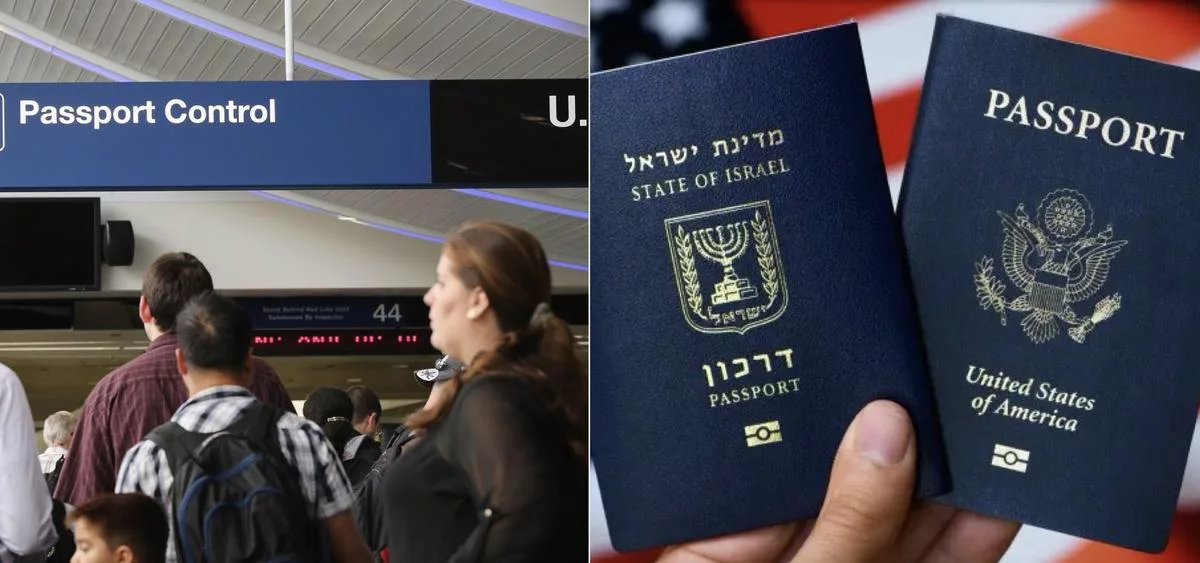Visa Waiver Agreement Boosts US-Israel Relations, Benefits Palestinian-Americans, and Promotes Diplomatic Progress Amidst Complex Middle East Dynamics

Credit: Google | U.S. Grants Visa-Free Travel to Israel
In a significant diplomatic move, the United States has welcomed Israel into its visa waiver program, allowing Israeli citizens to travel to the U.S. without the need for a visa, a development that marks a milestone in U.S.-Israel relations. The decision follows a successful summer test run that granted visa-less entry to U.S. citizens, including Palestinian Americans, into Israel.
The announcement came after a meeting between Israeli Prime Minister Benjamin Netanyahu and President Biden at the United Nations, solidifying their commitment to closer cooperation. This inclusion into the Visa Waiver Program aims to enhance national security collaboration, counterterrorism efforts, law enforcement, immigration control, document security, and border management.
#BREAKING 🇮🇱🇺🇸
— Today On Globe (@TodayOnGlobe) September 27, 2023
Israel is now part of the US Visa Waiver Program, granting visa-free travel to its citizens to the United States.#VisaWaiver #IsraelTravel #USA #tognews #todayonglobenews #todayonglobe pic.twitter.com/cn6OpDK1Np pic.twitter.com/8YOR3pdCtI
Notably, this reciprocity agreement enables American citizens, including Palestinian Americans, to visit Israel without a visa. The move has been hailed as a positive step for people-to-people ties between the two nations.
While Israeli Foreign Minister Eli Cohen expressed enthusiasm for this achievement, the road to visa-free travel wasn’t without its challenges. Israel faced strict requirements for entry into the program, including a high visa acceptance rate and low visa overstay rate. Meeting these criteria was complicated due to concerns over Palestinian-American access to the country, which led to separate immigration and screening processes.
The move, a political victory for Netanyahu, comes amid domestic backlash over proposed changes to Israel’s judicial system, resulting in mass protests within the country.
However, the decision faced criticism from some Democratic senators who raised concerns about Israel’s compliance with reciprocity for U.S. citizens, particularly those with Palestinian residency. They have pledged to monitor Israel’s adherence to Visa Waiver Program requirements and ensure equal treatment for all U.S. citizen travelers.
Palestinian American activists also expressed reservations about the decision, citing ongoing discrimination against Palestinian Americans in Israeli policies.
On a positive note, the move improves ease of travel for Americans, especially those previously facing discrimination based on ethnicity, national origin, or religion when attempting to visit Israel. This development aims to foster stronger U.S.-Israel relations and signifies a significant diplomatic achievement.
In parallel, the Biden administration faces complex diplomatic challenges with Israel, including issues related to changes in Israel’s judiciary system, anti-Palestinian policies, and efforts to persuade Saudi Arabia to normalize relations with Israel. These issues underscore the delicate balancing act in U.S. foreign policy and diplomacy in the Middle East.
With this development, the U.S. now extends visa waiver agreements to 41 countries, with the program aiding in security by facilitating faster information sharing among participating nations, including passenger lists. However, border officers retain the authority to deny entry at ports of arrival.
The inclusion of Israel in the Visa Waiver Program represents both progress and challenges in U.S.-Israel relations, underscoring the complex dynamics of diplomacy in the Middle East.
RELATED NEWS
WEB STORIES FOR YOU
Stay connected with Today On Globe for the latest Global Issues and News Updates.
Explore more related articles at [TOG News / TOG Article]






















